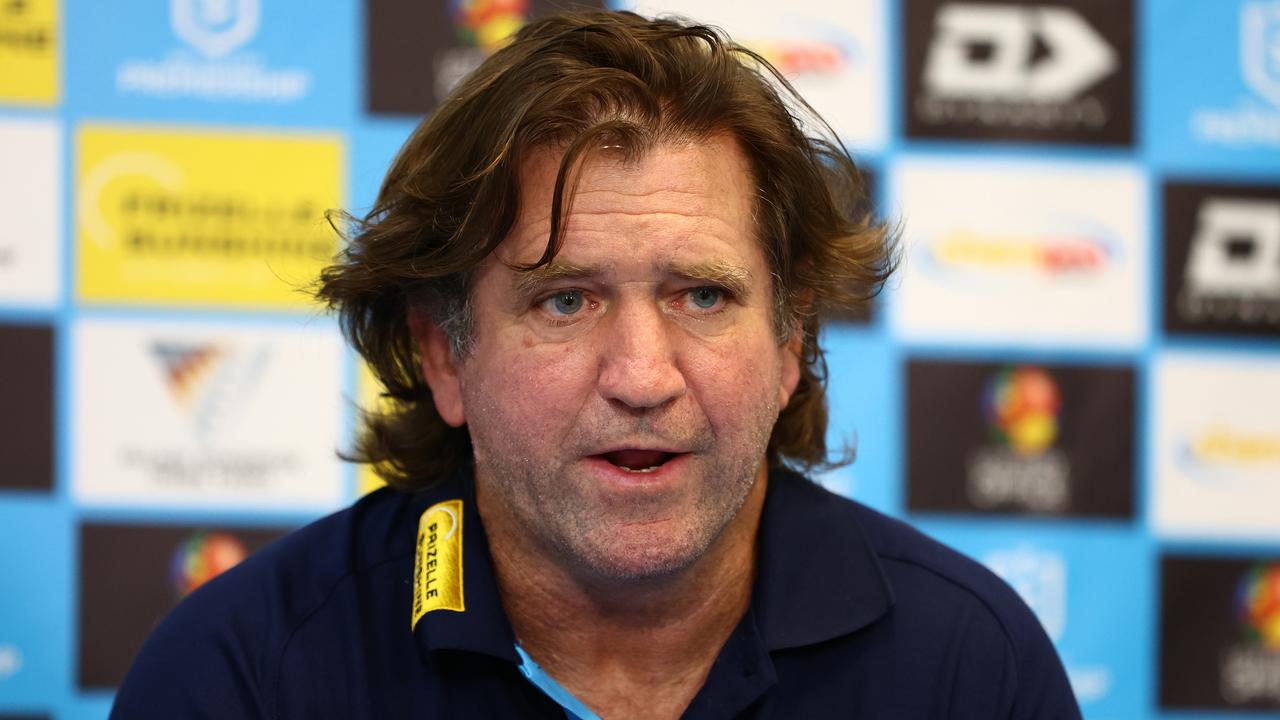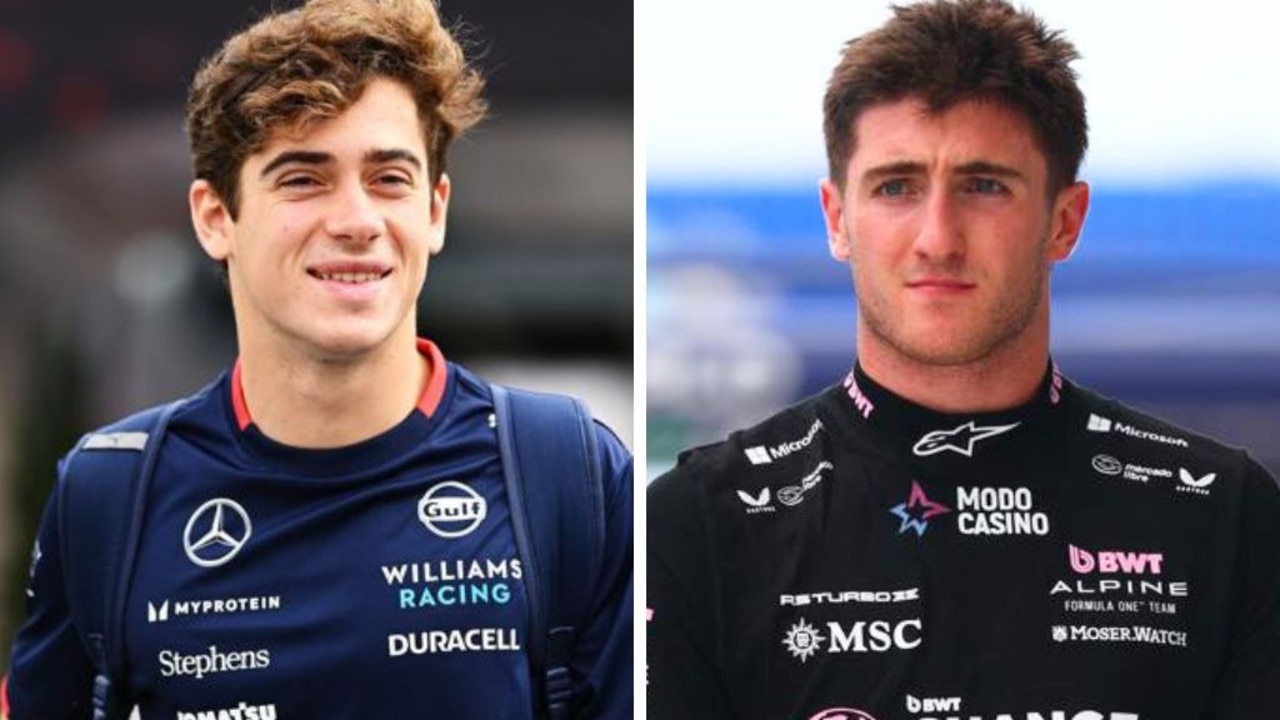Premier League 2017-18: bold predictions - including sack race ‘winner’ named and shamed
SPOTTER’S GUIDE: Forget forecasting who will win the thing: these are the stories ‘guaranteed’ to happen this year. *Includes the ‘winner’ of the sack race.
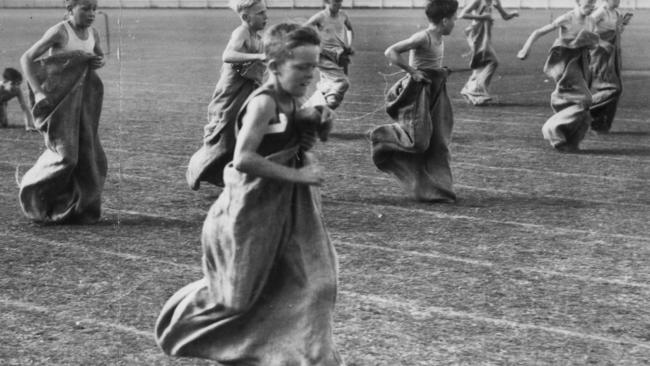
MONEY WELL SPENT?Every EPL club’s transfer business rated
AUSSIE WATCH:What’s in store for Mooy and Ryan this season
ROBBIE SLATER:Why I’m backing City for the title this year
CLUB-BY-CLUB:A complete guide to the season ahead
THE stories of the new Premier League season, told before they even have a chance to happen ...
The ‘Wenger Out’ campaign continues unabated
Towards the end of last season ‘Wenger Out’ placards were a common sight in and around the Emirates Stadium. In fact, in stadiums across the globe. The simple two word instruction took on a life of its own as the club’s stasis slipped in to regression, the habitual humbling by a top European side in the knockout stages of the Champions League being married this time with an abdication from their traditional place in the top four (and the mythical trophy that went with it, in Wenger’s assessment).
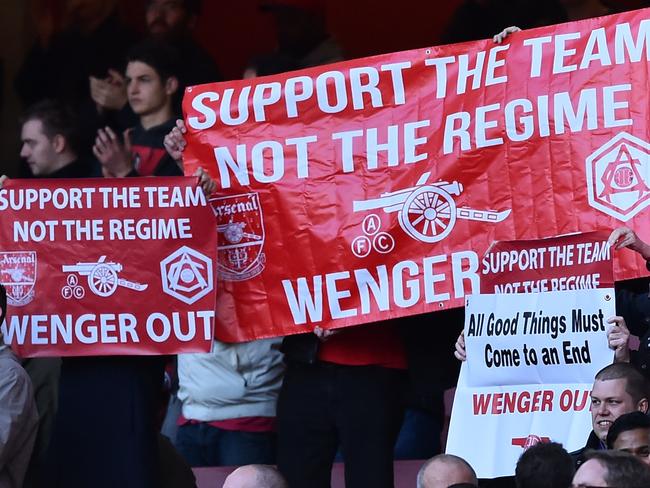
No Champions League football, then, but Wenger refused to yield, signing on for two more years and promising a renewal on the back of the record breaking signing of Alexandre Lacazette.
An end to the unrest, then? The club and fans united behind their manager, banners of dissent replaced by In Wenger We Trust T-shirts as the fashion statement of the moment? Stranger things have happened … but not many. Really, not many at all.
Calls for VAR grow (but only when ‘my’ team suffers, obviously)
The Video Assistant Referee will be a fixture of the Bundesliga next season, but not the Premier League. This will have no significant impact at all on the outcome of games or where the title goes or who gets relegated. None. Though will add another, tiresome element to post match interviews in every game where a contentious decision is seen.
“I don’t understand why in 2017 we can have this system in Germany but not here, it’s crazy,” the ‘wronged’ coach will say, before adding: “It’s decisions like this that see managers lose their job,” before walking off mumbling something about consistency.
The coach who benefits, will, conversely, insist that “referees have a hard job and I’m not going to comment on that”, before commenting at length when roles are reversed a couple of matches later.
The world finally tires of Jose Mourinho’s mind games/petty incoherent moaning
The Portuguese’s descent from acid-tongued, twinkle-eyed wit through acerbic, paranoid malcontent to full blown tiresome blowhard has been as much a feature of Jose Mourinho’s career as has his ability to hoover up trophies and fall out with gifted midfielders.
When he arrived in England the first time round, his press-conference performances were solid gold entertainment. His assertion that he was a special one arriving at Chelsea was backed up by the medals he had won. He has continued to amass the silverware - even picking up two gongs with an ordinary sort of season for Manchester United last term.
But his charm, if ever it could have been called that, has started to wear a touch.
He arguably jumped the shark with his seven minute monologue crying victim of conspiracy and injustice from referees following a defeat to Southampton in the fag end of his second spell at Chelsea. He left Stamford Bridged diminished. And yet in his latest job he has shown little willingness to turn the dial down on the bitching and sniping at referees, opposition managers and, when he feels inclined, his own players.
With United looking well set to challenge for the title this season Mourinho will be a regular presence on our TV screens.
So perhaps it’s time of a philosophical experiment. If an angry middle-aged man moans about referees being scared to give his team penalties and no one reports his annoying rambling - was the decision ever really contentious at all? It’s a thinker.
Mark Hughes ‘wins’ the Premier League sack race.
After death, taxes and Donald Trump lying on Twitter, the most nailed on certainty in this life is that in any given Premier League season managers will lose their jobs. But someone has to be first.
Anyone is vulnerable at any time, of course, just a string of bad results or a whimsical decision maker in the boardroom away from getting the flick. This year, however, presents something of an unusually restricted field, in the early weeks at least.
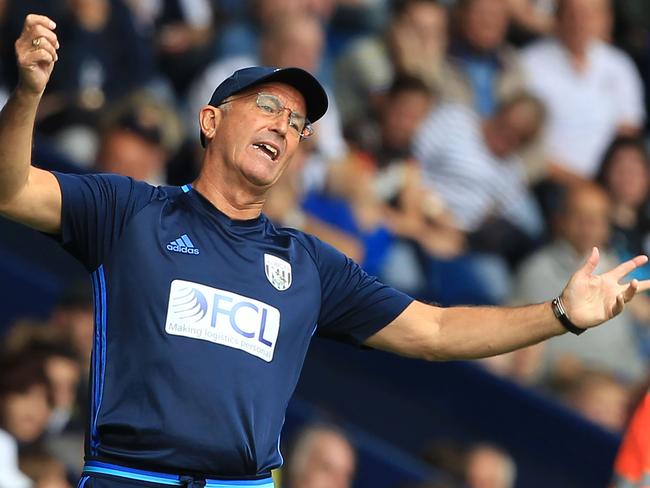
At the top end, the incumbents at Chelsea, Tottenham, Liverpool, the two Manchester clubs and Everton are well liked and well backed. Arsene Wenger looks bullet proof for some reason, too. Of the likely strugglers Brighton and Huddersfield won’t be ditching their promotion winners for failing to tear up trees; Palace, Watford and Southampton have new men in place who will be given at least a small honeymoon period.
Eddie Howe at Bournemouth and Craig Shakespeare at Leicester are considered safe hands at their respective clubs with credit in the bank.
Rafa Benitez at Newcastle and Marco Silva at Watford have the most capricious and itchy-trigger-fingered bosses, but both are likely to perform well against relatively limited expectation.
And so attention must turn to those men who have, firstly, been in the job a while, secondly, who are at risk of notably struggling, a poor start making owners nervous that their seemingly well established Premier League credentials are in danger of being lost.
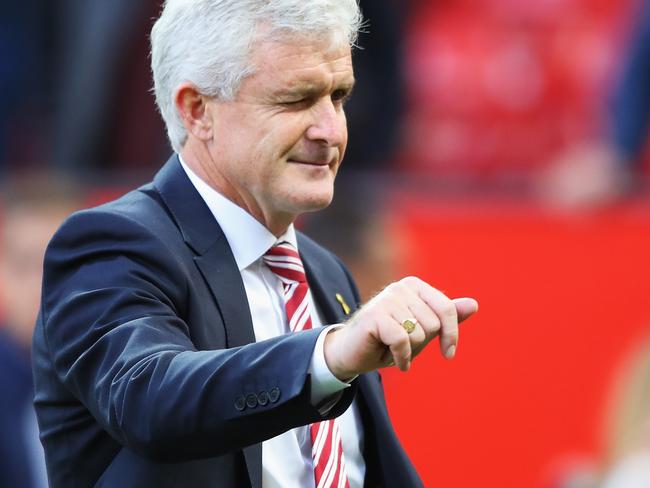
Discounting Slaven Bilic due to some wise transfer dealings at West Ham, the process of elimination sees us come down to three men for whom under rather than over performing is more likely, and who don’t have the affable personalities to charm their way out of danger: Tony Pulis (West Brom), Sean Dyche (Burnley) and Mark Hughes (Stoke). The latter seems most in peril.
Stoke’s first seven games include Everton, Arsenal, Man United, Chelsea and Manchester City. Their two ‘winnable’ games in August and September are away from home, against Newcastle and West Brom.
Burnley, by contrast, have three home games against West Brom, Crystal Palace and Huddersfield before September is out, and West Brom’s first five fixtures are Bournemouth, Burnley, Stoke, Brighton and West Ham.
Stoke host Southampton on October 01, immediately before an international break (a convenient and healthy period for installing a new man). It could be Hughes’ last at the club if it ends in defeat. You heard it here first.
Huddersfield break the record for lowest points in a single season
One of the favourites to be relegated from the Championship last season, with the third lowest budget in the second tier, Huddersfield upset the odds in reaching, and winning, the play-off final.
Since then they haven’t been shy in spending the estimated $280m windfall that promotion earned them, notably making their loan of Socceroo Aaron Mooy permanent for $13m and topping that record signing, twice, to draft in Tom Ince and Steve Mounie.
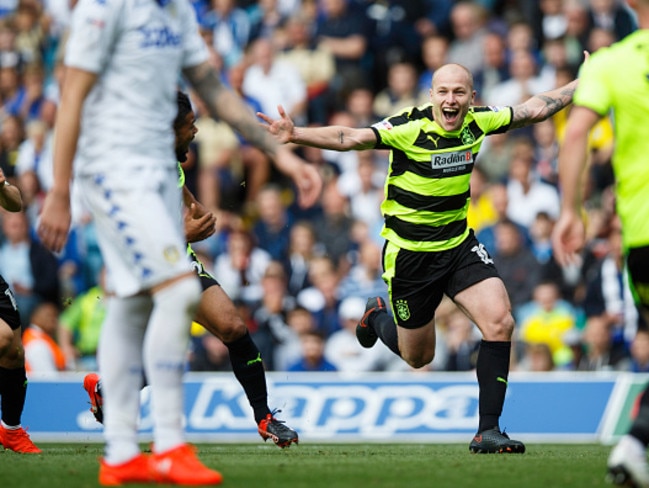
More than half a team of new faces have joined the club, and yet, the chances of them surviving in their first season back in the big time in four decades are slimmer than those of them arriving here in the first place. Or Mooy sporting a fashionable haircut before the season is out.
A fun-while-it-lasts relegation season and a financial platform to serve them well for the next five years is the probable outcome. Pessimists in West Yorkshire – of which there are many – are even looking nervously at Derby County’s unwanted record of the lowest points haul in a Premier League season, the 11 scraped from 38 games in 2007-08.
Could David Wagner’s side go lower? Romantics will hope not, realists will deem it more than possible.
Tottenham struggle in their home away from home
Tottenham’s home record last season was the best in the division. From 19 matches played at White Hart Lane 17 were won and none lost, 47 goals scored and just nine conceded. That imperious record propelled the club to second in the Premier League. But things may be very different this time around.
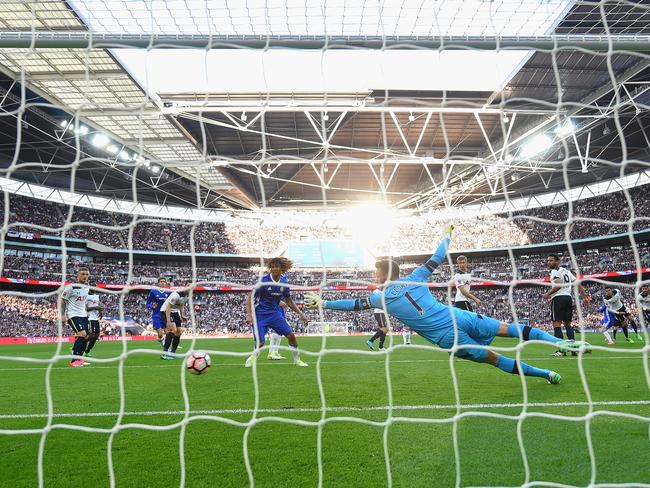
Spurs’ home matches will be played at Wembley while their usual digs are rebuilt. A trial run took place with their Champions League fixtures played at the national stadium last season. The omens are not good. Tottenham and Wembley, in recent years at least, do not go well together. Two wins and a draw in the last 10 matches there, if repeated in the league, would be relegation rather than championship form. Sunderland won three matches on their own turf last season.
In mitigation, the sides they’ve hosted at Wembley have been of a higher caliber than the likes of Brighton, Swansea and Huddersfield. And familiarity should come quicker playing there every other week.
And yet, as West Ham showed last season, a big, expansive stadium that feels unfamiliar can hamper form. Like walking in to a room where all the furniture has been rearranged, it just doesn’t feel right. And that’s before considering the ‘Wembley Effect’, the idea that teams raise their games in a rare visit to the storeyed ground.
As Chaz and Dave famously once sang, when Ossie Ardiles made the trip from the Seven Sisters Road to Wembley “he knees went all trem-b-ley.” A few Spurs fans might be understanding how one of their greats felt.
An England international suffers some minor injury in March or April
It’s a World Cup year. Which means fans of England will be embarking on nine months plus of sorrowful introspection about the state of the national game, concern over the lack of domestic players in the Premier League, and English clubs’ failure to compete at the business end of things in Europe. Before arriving at a dour sense of realism about the team’s chances in Russia (then catapulted in to a state of frenzied optimism and excitement about years of hurt concluding right at the last minute, based on nothing more than a muscle memory reflex and an innate sense of entitlement and hubris, before, well, you know what happens when they get to tournaments).
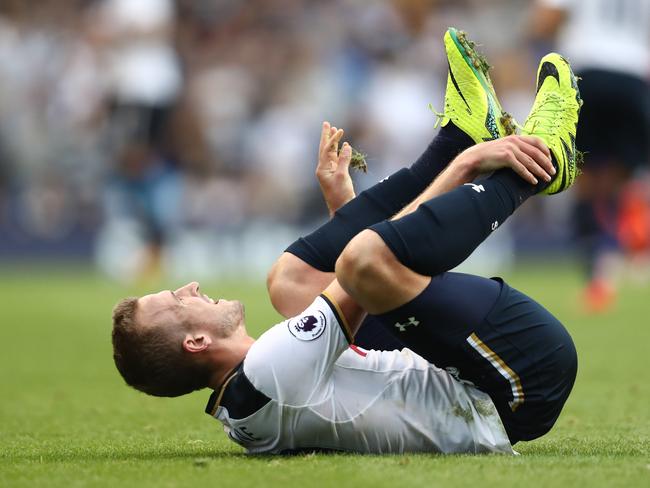
Along that journey, a diversion will be placed down an ally of panic when one of Harry Kane, Delli Ali, erm, Kyle Walker, or, let’s see, Jordan Henderson (does that count?) knackers a metatarsal or sprains something delicate a couple of months out from the end of the season.
Man City spend big on their back line ... but still can’t defend
Manchester City had a problem last season. They couldn’t defend. Or at least they couldn’t defend in the stylish-attacking way that Pep Guardiola wanted them to.
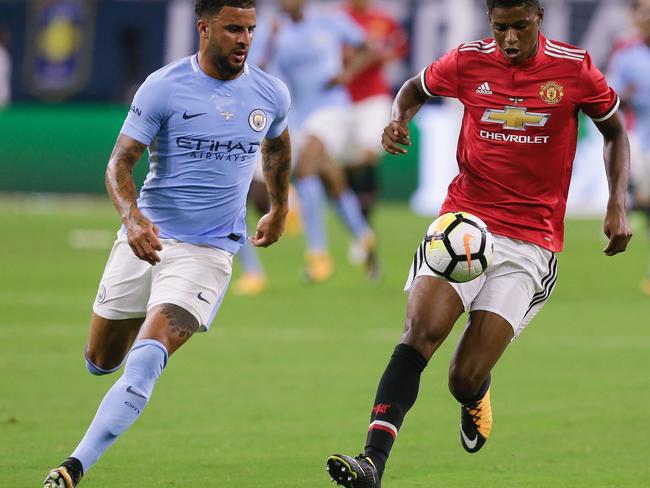
But they don’t pay him the big bucks for nothing. And the astute Catalan has taken less than 12 months to identify it.
And when City have a problem, they have a ready-made solution: throw bucket loads of cash at it and hope the thing fixes itself.
And so, welcome to the party Danilo, $43.4m of Real Madrid full-back whose job it will be to sit on the bench and be ready should Benjamin Mendy ($85.5m from Monaco) or Kyle Walker ($82m from Tottenham) fail to live up to their enormous billings as dynamic wingers who can, probably, defend if needed to, you imagine.
With Ederson arriving from Benfica, Guardiola has now signed roughly 17 goalkeepers and, in his 12 months at the club, has shelled out more cash on his defence than Bosnia have on theirs in the same period (the nation, not the football team).
Annual spending on defence:
— Macauley Mills (@Macauley_22) July 24, 2017
USA £820bn
Cuba £700m
Man City £200m
Bosnia £180m
Congo £135m#MCFC 😂 pic.twitter.com/TlfxQGX4tc
Should such drastic and expensive husbandry of his backline not produce instant results Guardiola will have questions to answer. Judging by Ederson’s rush of blood to the head dash from the area to gift Manchester United a goal in their pre-season run-around, it’s no guarantee. And despite the quality of recruits, meshing them together, especially when being micro-coached to within an inch of their lives, means last season’s problems may very well resurface. Watch this space (specifically the one between John Stones and his new goalkeeper, should be plenty of action there…).
Originally published as Premier League 2017-18: bold predictions - including sack race ‘winner’ named and shamed

